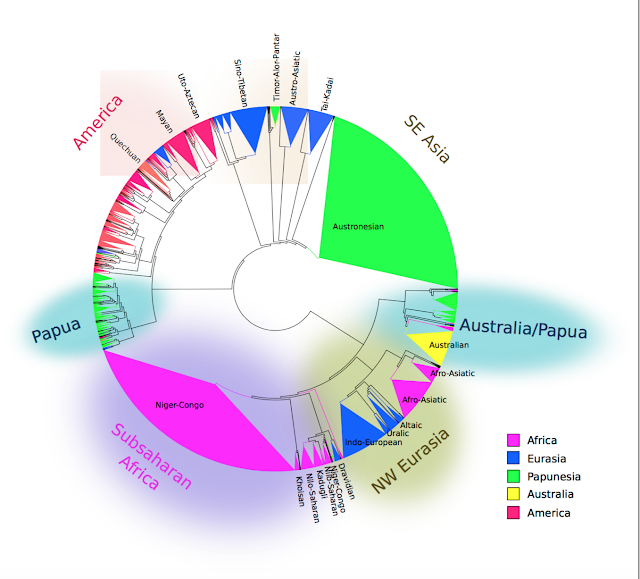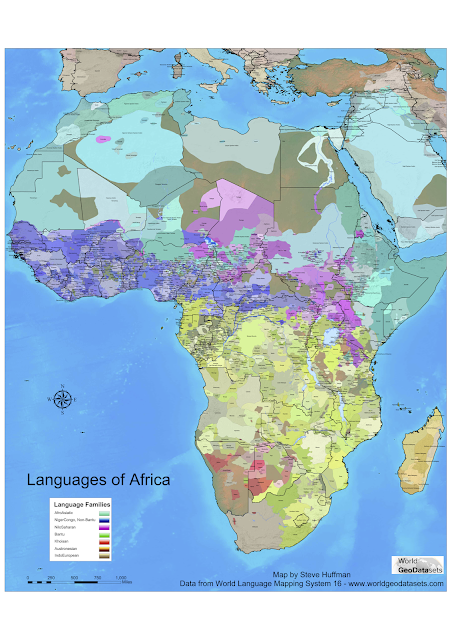International Women's Day - Joan Bresnan
Today is International Women's Day. Here at HWRG we're celebrating it by highlighting an important female linguist. Today we're honouring Joan Bresnan, who together with Ronald Kaplan, founded the theoretical formal grammatical framework Lexical Functional Grammar (LFG) and has written numerous influential papers.
 |
She is still active as a Professor Emerita in Humanities at Stanford University and also a Senior Researcher (Spoken Syntax Lab) at Stanford's Center for the Study of Language and Information. Her research and LFG is much informed by a wide knowledge of linguistic diversity, in particular of Australian and Bantu languages. LFG is still a popular framework in linguistics and continues to develop.
Here is a quote by Bresnan that illustrates her ideas and experience of formal linguistics very well:
I began to realize that we theoretical linguists had no privileged way of distinguishing the possible formal patterns of a language from the merely probable. Many of the kinds of sentences reported by theorists to be ungrammatical are actually used quite grammatically in rare contexts. Authentic examples can be found in very large collections of language use, such as the World Wide Web. [...] Moreover, judgments of ungrammaticality are often unstable and can be manipulated simply by raising or lowering the probability of the context. Most remarkably, language users have powerful predictive capacities, which can be measured using statistical models of spontaneous language use. From all these discoveries I have come to believe that our implicit knowledge of language has been vastly underestimated by theoretical linguistics of the kind I had practiced.
You can read more about Bresnan at her own homepage at Stanford, you can also find publications by her there (often direct free PDFs). Among other things, she's written about pidgin languages and optimality theory!
I've always considered myself lucky to be in a field with so many prominent female researchers, for example Tannen, Tagliamonte, Wierzbicka, Poplack, Simpson, Stoll, Berko Gleason, Aikhenvald, Siewierska, Wodak, Traugott, Lakoff, Majid, Meyerhoff, Bybee, Travis, Goldberg, Nichols, Lieven and many more. Perhaps we'll make more posts like this about specific researchers, and in particular women. Keep an eye out :)!
In case it needs clarifying; research and academia are, unfortunately, often influenced by non-scientific factors such as gender or racial inequality or sensitivity to what is trendy/popular rather than scientifically interesting. The actual working environment and sensitivity to issues of for example gender, race, sexuality etc can greatly impact wether a researcher decides to continue in that field regardless of their skill at producing good research (here's just one source on this, I could link way more). Researchers don't exist in an objective vacuum separated from the rest of society, and these matters have actual impact on research as diversity of ideas and perspectives is lost. While many parts of academia and also some parts of linguistics can be very male-dominated and at times not nurturing for women, linguistics is still definitely one of the better fields to be in. This is one of many reasons I'm glad to be in this field!
For more research on gender equality and the job market, please check out NPRs Planet Money's episode on why women stopped coding which explores women's rising numbers in STEM - except in computer science. I also would like to recommend Freakonomics episode on the gender wage gap in the US where they stress the impacts that flexible working conditions, day care and responsibility of parenting has on gender equality on the job market. Both of these shows interview researchers who are very knowledgeable on these topics and are supported by large data sets. Highly recommended!
All the best to everyone out there, may academia continue to grow into a diverse community that better reflects the population of the planet.



Comments
Post a Comment